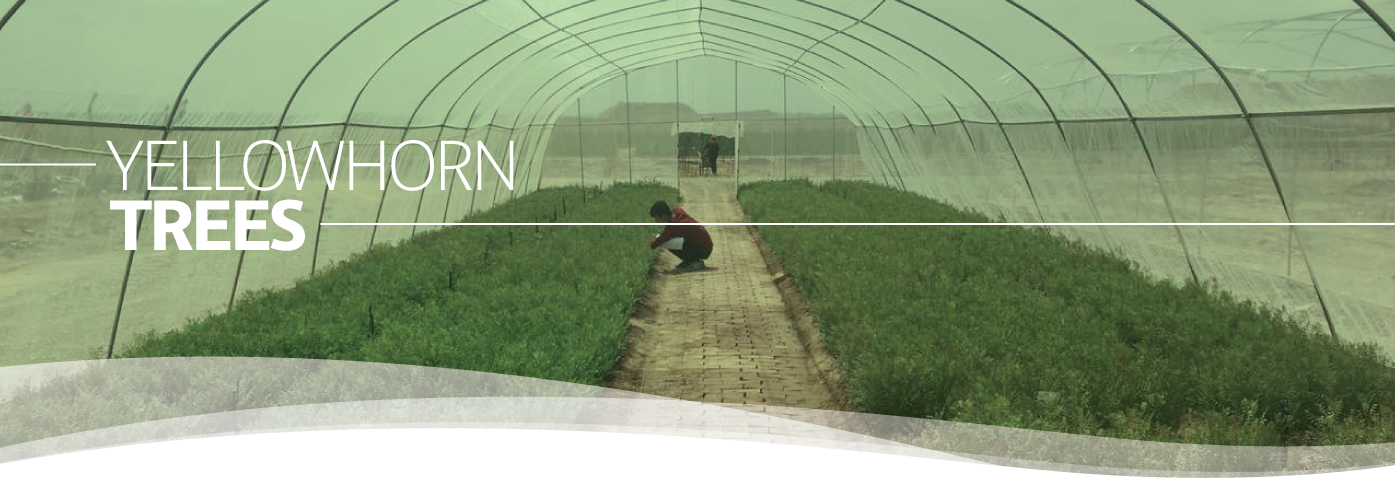In China, FuturaGene is developing an oil-producing woody desert species, yellowhorn, (Xanthoceras sorbifolium) to couple ecosystem services (stopping desertification) with economic offtake in highly degraded lands. We have become a major provider of conventional elite seedlings of this species and we aim to extend our capabilities to become an integrated oil producer.
Yellowhorn is an indigenous tree variety cultivated as an ornamental in China, but also used to prevent desertification, as it helps bind the soil and can tolerate prolonged dry conditions once established.
This small tree is slow-growing, but once established it produces edible seeds – dried nuts can be eaten raw or cooked or ground into flour. The seeds’ high oil content (up to 60%) makes them an excellent source of biomaterials: cooking oil, comparable to olive oil, cosmetics ingredients or feedstock for the biofuel industry.
From selective breeding to elite seedlings production
To date, Yellowhorn has been propagated using seeds, a lengthy process which produces non-uniform offspring. Our expertise in tissue culture and mass germination methods has enabled us to clone high performing trees to produce superior quality, uniform plants for plantation purposes.
Our commercial operations are situated in Gansu Province, where we now produce yellowhorn seedlings for sale to local government and private farmers.
Integrated oil producer
We aim to apply our group´s skills in plantation forestry to establish our own sustainable yellowhorn plantations. Our goal is to become a world leader in desert woody oil production, balancing socio-economic growth with sustainable use of natural resources.
To learn more about the developments on our Yellowhorn business, please access our Yellowhorn Website.

